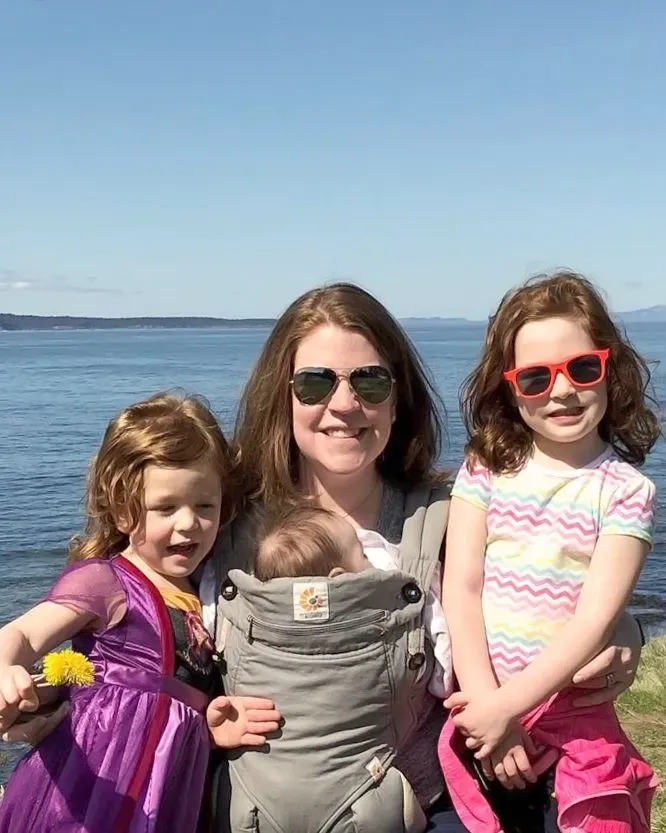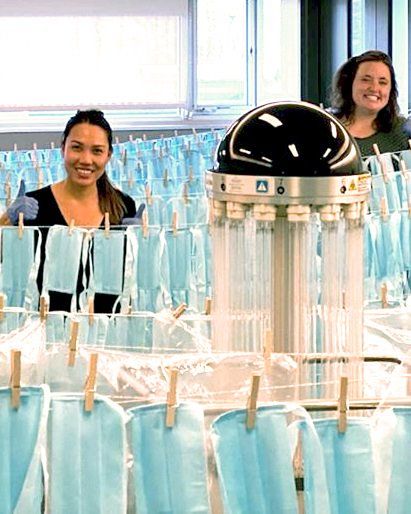
Tips for a Successful Virtual Physician Job Interview
Video interviews are now a way of life for physicians and APCs. Here’s how to make the most of yours.
September 23, 2024
Virtual job interviews have become a critical step in the hiring process for doctors and advanced practice clinicians in the last decade. If you’re interviewing for a job, it’s your first and best chance to make a good initial impression on hiring managers and your future team.
Cyrus Ombaire, a Gastroenterology Nurse Practitioner hired through PS&D, experienced a solely virtual job interview process during the pandemic. He and one of our recruiters discuss his story and offer tips on how to ace your own video interview.
Nurse Practitioner Is Hired After Series of Virtual Interviews
During the COVID pandemic, Cyrus was working at a small clinic in Arizona. He wanted to join a larger organization where he could elevate his career. He also wanted to work in a mission-based environment and be closer to his brother, who lives in Canada.
The Providence health system in Washington seemed like a good fit, and he applied for a GI NP position at St. Mary Medical Center in Walla Walla, Washington.
He’d never been there, but it looked pretty online, and he was attracted to its moderate temperatures, small-town community, mountain biking trails and good school system. After a series of phone screens and virtual job interviews, he was offered the job.
“It wasn’t an easy decision. I’d never been to Walla Walla, and I would have liked to visit before I accepted my offer. But that’s not the world we were living in, and I did not want to put my future on hold,” he says.
“PS&D was great in giving me all the basics, everything I wanted to know about the job, and details on the benefits, relocation and compensation.”
~ Cyrus Ombaire, Nurse Practitioner
Cyrus’ household includes his elderly mother and elementary-age niece. He grew up in a small village in Kenya, Africa, where there were no healthcare facilities. Watching his sister die of stomach cancer and receive inadequate medical care led him to pursue a medical career in gastroenterology.
When he moved from Kenya to Nebraska in 2006 for nursing school, it was a massive change. More than a decade later, a move to Walla Walla was another step into the unknown, but one Cyrus says he took with optimism.
The job search process was surprisingly easy, he says. He applied for the position, and within a day, a recruiter from Provider Solutions & Development (PS&D) contacted him for a phone screen. Hours later, a GI physician from St. Mary called to talk to him about the position. By the time he was hired, Cyrus had one-on-one conversations with three physicians and a team interview, all via video conference.
"PS&D was great in giving me all the basics, everything I wanted to know about the job, and details on the benefits, relocation and compensation," he says.
“I was able to get to know the St. Mary team through phone and video job interviews. I could tell they put the patient first. That was important to me. Everyone was so warm, and I got to a place where I knew that I would feel comfortable walking into this environment.”
Participating in so many virtual job interviews was a bit nerve-wracking, he says. But there are things he suggests that can make the process easier and set you up for success.
“First, do a trial run with a friend to make sure your technology works. Second, write down all your questions, and don’t feel embarrassed if it’s a long list,” he says. “Have it right in front of you for every interview, and make sure you get all your questions answered.”
Heather Swayze, one of the PS&D recruiters who worked with Cyrus, agreed and added that, in a virtual environment, connecting with the people interviewing you takes on a whole new importance.
“You are going to want to engage in maybe a bit more small talk or banter,” she says. “Find something in common that you can talk or laugh about. That will go a long way toward connecting with the team when you can’t meet them in person.”
“Do a trial run with a friend to make sure your technology works. Write down all your questions, and don’t feel embarrassed if it’s a long list. Make sure you get all your questions answered.”
~ Cyrus Ombaire, Nurse Practitioner
Virtual Interview Tips From PS&D Recruiters
-
Set the stage for a successful physician or APC virtual job interview by putting your computer or laptop in a tidy room with an uncluttered background. You want to be the visual focal point on the screen. Make sure all other devices are turned off, and your family members or pets won’t interrupt the conversation.
-
Several days before your physician or APC virtual job interview — and on the day of — test your technology. How’s your internet connection? Does your camera and microphone work? Especially in today’s world of telehealth medicine, employers are looking for tech-savvy candidates.
-
Practice your virtual interview questions, instead of memorizing, so you’ll sound genuine, clear and succinct. Also, avoid long-winded answers.
-
During the physician or APC job interview, you won’t want to be clicking around on your computer. The team interviewing will be able to see and hear you doing this. Be prepared to answer questions on your own. Print out your CV and common interview question answers so they’re easy to reference.
-
Presentation matters. Choose an outfit you’d wear to an in-person interview. Professional clothing will let the team know you’re serious about the physician or APC job opportunity, and will help you feel competent and put-together.
-
Remember that body language is still important in a virtual interview. Keep the camera at eye level, sit up straight, smile and maintain eye contact by keeping your focus on the camera when you’re talking. Be a bit more expressive than usual and let your personality come through — culture fit is important.
-
Finally, send emails to thank everyone individually after your interview is over. If you personally connected about something, mention that, as well as anything you may have forgotten to say. Be polite, warm and conversational.
-
Remember that above all, preparation is the key to virtual physician or APC job interviews. Following these steps will help your best self and your skillset shine through the screen.
Beyond the Virtual Interview
After the virtual interview, hiring managers will typically narrow down the list of candidates, then schedule the physician or advanced practice clinician site visit.
At PS&D, our team has helped thousands of doctors and APCs find their next job. With hundreds of practice opportunities nationwide — and across a diverse range of healthcare partners — we can help you navigate the virtual interview, the site visit and beyond.
Our main goal? To connect you with a position where you’ll be happy both on and off the job. Reach out today to get started.
Journal originally published 05/07/2020
Updated 09/23/2024
Additional Articles

Compensation
5 Ways to Ensure You’re Getting a Fair Offer

Rural Medicine
